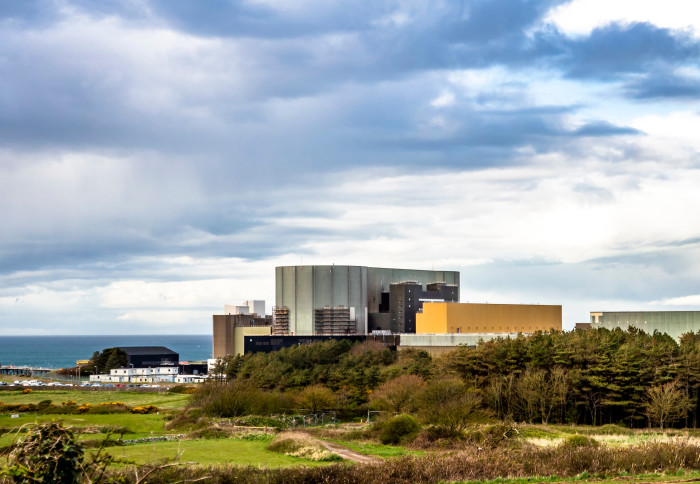Imperial nuclear Director gives expert evidence to parliament

Dr Michael Bluck, Director of the Centre for Nuclear Engineering, appeared in front of the Welsh Affairs Select Committee last week.
Dr Bluck appeared in front of the House of Commons Select Committee on Welsh Affairs, chaired by Stephen Crabb MP, as part of their inquiry into nuclear energy in Wales. Dr Bluck appeared in the first panel of the session alongside Professor Adrian Bull, Associate Director, and Dr William Bodel, Research Associate, from the University of Manchester’s Dalton Nuclear Institute.
Role of nuclear in achieving Net Zero
Dr Bluck noted that few countries had made tangible achievements to meet Net Zero but those that had were home to substantial hydro or nuclear power. He highlighted the UK’s history in nuclear energy production and an existing skills base that make it one of the few mechanisms with a demonstrated background to help meet Net Zero. On the role of nuclear, he outlined its importance in tackling the intermittency problem faces by renewables. Dr Bluck pointed out that renewables are made cheaper when the energy solving the intermittency problem is cheap. Previously this has been gas, but recent rises and volatility in gas prices have had negative impacts.
Professor Bull emphasised that nuclear and renewables support one another. He commented that while it was important to add new nuclear to the UK’s energy mix, consideration should be given to offsetting the nuclear coming off grid soon.
Dr Bodel highlighted the decarbonisation of surface transport as one area where the transition to electric and hydrogen vehicles would be assisted by nuclear’s ability to supply baseload electricity and generate hydrogen.
Beth Winter MP cited research by Imperial’s Energy Futures Lab showing scenarios in which total renewable generation was possible, Dr Bluck commented that these scenarios relied on technologies that don’t exist in use yet
Other uses
Professor Bull raised nuclear’s potential for broader uses than previously considered, such as producing hydrogen and heat.
Dr Bluck continued, noting that most reactors generate 2KhW of heat for every 1KhW of energy they produce. He said that presently, in the UK, that heat dissipated but in other nations it is used for district and domestic heating and for heat intensive industries.
Energy Independence
Professor Bull described nuclear energy as a low carbon option that also provides energy security and independence, even if critical materials such as uranium are not produced in the UK. Dr Bodel specified that a doubling in the price of uranium has less impact on nuclear than increases in current gas price rises have had. This is due to gas being a supply source and uranium being a relatively small component of nuclear reactor and energy costs.
Funding
What transforms the rollout of nuclear is ambition and commitment Professor Michael Bluck Director of Imperial Centre for Nuclear Engineering
Professor Bull stated that, unlike other sources of electricity generation, nuclear has high upfront costs. Dr Bluck continued that over its lifespan of 60-80 years nuclear is inexpensive and needs to be viewed in this context.
When questioned about whether government could do more, all panellists said greater public support and ambition would convince further private investment funding.
Skills and employment
On employment, Dr Bluck stated that a functioning nuclear site requires around 1,000 employees in a variety of high skilled jobs. However, to build a reactor, tens of thousands will be employed.
Dr Bluck said that the nuclear sector can also generate high-quality, skilled jobs in industries such as hydrogen, heat and steel and throughout associated supply chains.
Dr Bluck and Professor Bull agreed that long-term clarity on multiple projects and skills is required. Dr Bluck concluded by noting the potential of projects to reinvigorate and grow local economies, referencing Wales’ history of steel production.
Article text (excluding photos or graphics) © Imperial College London.
Photos and graphics subject to third party copyright used with permission or © Imperial College London.
Reporter
James Heyburn
Communications Division